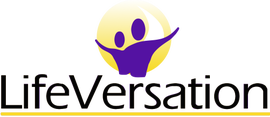 Within each of us is a power that can alter activity on the other side of the world. That power is our spoken words. “Our speech is power: which should be used to persuade, convert, and compel.”, Says Ralph Waldo Emerson. Spoken and unspoken words have a tremendous effect on the success and failure of our lives. In the movie called “A Thousand Words,” Eddie Murphy plays a literary agent named Jack McCall who had one thousand words to use before he would physically die. Even his unspoken words counted against his thousand. He had a high price to pay for the use of his words and so do we. Martin Luther said it this way, “You are not only responsible for what you say, but also for what you do not say.” If we seek to live successful lives, we must take full responsibility for our words. 3 Power Guides 1. Bank – A word bank is a place where people keep words they have learned for future references. We all possess a word bank in our heads. Our memory bank is continuously being filled with words from our life experiences. Often we are not aware of what's deposited until it's time to use it. Now depending on what's stored, our withdrawals can show up as bullying, put-downs, and hating on favorable situations. We must filter what's collected, so our output isn't polluted. Focus on being responsible by allowing your word bank to be filled with more positive words than negative. Challenge yourself to withdraw words that provoke thought, words that encourage, words that will guide those who hear. 2. Boundaries – Great power is usually protected with a barrier to prevent misuse from outsiders. When a baby is starting to crawl boundaries are put up to protect the child from harmful things. Those things don't seem bad to the child because they want to explore and try it all. But for someone that understands the dangers they can see the harm that can come from the child's inexperience and curiosity. In our heads we can be like the exploring child, wanting to say things because of feelings and emotions. Maturity calls for control on what we say because some words are better unsaid. Formulate your word boundaries with your values. Allow your purposes to govern your words to be positive instead of a lethal weapon of destruction. Keep your boundaries refreshed by continuing to reflect on your responsibilities and goals before you utter a word to speak. 3. Bond – Like it or not we are physically bonded to our words. Zig Ziglar said it this way, "Life is like an echo. What we send out, comes back. What we sow, we reap. What we give we get. What we see in others, exist in us." Before we speak think about the effects our words have on others and ultimately ourselves. You are bonded to your words of gossip, rudeness, lying, etc. and on the flip end when they are positive, they build and promote a better you. No matter what's depicted on T.V., negative words will never bring long term success. Your words express who you are on the inside to the outside world. Be one hundred percent purposeful with what you are doing and saying so the power connected to them can present a positive outlook. Summary - Dr. Laurence J. Peter says, “Speak when you are angry - and you'll make the best speech you'll ever regret.” Use your words wisely, and they can unleash the world. Use them loosely, and they can destroy your present and your future. Increase your positive words by building your word bank, setting boundaries, and better understanding the bond you have with each word that comes out.
0 Comments
|
Archives
December 2020
|
"Delivering Peak Performance Behavior Training"
(601) 879-GOAL (4625)
[email protected]
Copyright © 2012-2024
(601) 879-GOAL (4625)
[email protected]
Copyright © 2012-2024

